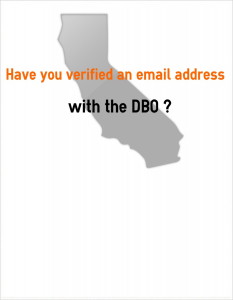As part of its “Fiscal Year 2013 Agency Financial Report” released by the Securities and Exchange Commission (“SEC”) on December 17, 2013, the SEC discussed how the agency’s new and “more aggressive enforcement actions” fared in 2013. According to the report, the SEC ended the fiscal year of 2013 with 686 enforcement actions, including 402 in the last six months of the year. Furthermore, the SEC stated the resulting disgorgement and monetary penalties arising from these enforcement actions totaled $3.4 billion. This number represents a ten percent (10%) increase from 2012, when monetary penalties from SEC sanctions totaled $3.1billion, and a twenty-two percent (22%) increase from what was seen in 2011. The SEC cited several reasons for this increase, including a more effective examination program, strengthening market structure, and the information obtained by those those in the industry in the form of “whistleblowing” tips. According to the SEC, it received an estimated 3,238 tips during the fiscal year and paid out more than $14 million to whistleblowers for tips received which led to enforcement actions. For more information on whistleblowers, go here.
Read MoreJacko Law Group Blog
The Securities and Exchange Commission (“SEC”) recently ordered a cease-and-desist against hedge fund adviser Agamas Capital Management, LP (“Agamas”). The SEC alleged, among other things, that Agamas failed to adopt and implement written compliance policies and procedures as required by Section 206(4) of the Advisers Act and Rule 206(4)-7. The rule requires investment advisory firms to develop a set of policies and procedures reasonably designed to “prevent violations from occurring, detect violations that have occurred, and correct promptly any violations that have occurred.” Although Agamas had policies and procedures in place, they failed to ensure investor disclosures were accurate, and failed to prevent improper discretionary valuation of securities.
Read MoreOn November 22, 2013, the Commissioner of Business Oversight (“Commissioner”) and the California Department of Business Oversight (“DBO”) issued an order affecting all broker dealers and investment advisers (and any other businesses engaged in financial transactions) which are licensed to do business in the State of California. The order requires licensees to establish within their electronic mail system, a dedicated generic email address to receive electronic mail communications from the Commissioner and the DBO. The purpose of this order is to ensure that all licensees can be reached during an emergency and at other times. The Commissioner seeks to take advantage of “modern electronic communication methods” to deliver the same message simultaneously to all or to a select group of licensees of the DBO. The Commissioner and DBO want to be able to depend upon licensees to receive and respond to communications from the Commissioner in a dependable and timely manner. Below are some tips on creating your firm’s designated email address.
Read MoreLegal Tip Archive
- September 2011 (5)
- April 2014 (5)
- August 2014 (5)
- September 2015 (5)
- August 2011 (4)
- October 2011 (4)
- June 2012 (4)
- July 2012 (4)
- August 2012 (4)
- October 2012 (4)
- November 2012 (4)
- January 2013 (4)
- March 2013 (4)
- April 2013 (4)
- May 2013 (4)
- June 2013 (4)
- September 2013 (4)
- October 2013 (4)
- January 2014 (4)
- February 2014 (4)
- March 2014 (4)
- May 2014 (4)
- June 2014 (4)
- July 2014 (4)
- December 2014 (4)
- January 2016 (4)
- November 2011 (3)
- December 2011 (3)
- January 2012 (3)
- February 2012 (3)
- April 2012 (3)
- May 2012 (3)
- September 2012 (3)
- December 2012 (3)
- July 2013 (3)
- August 2013 (3)
- November 2013 (3)
- December 2013 (3)
- January 2015 (3)
- February 2015 (3)
- March 2015 (3)
- July 2015 (3)
- August 2015 (3)
- November 2015 (3)
- February 2016 (3)
- March 2012 (2)
- February 2013 (2)
- October 2014 (2)
- November 2014 (2)
- April 2015 (2)
- May 2015 (2)
- June 2015 (2)
- October 2015 (2)
- December 2015 (2)
- July 2011 (1)
- September 2014 (1)










